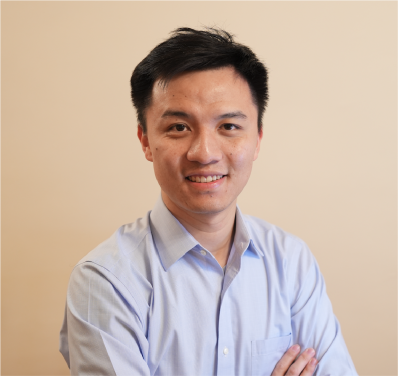Media
HKU Engineer Professor Chao Xiang Receives 2025 Croucher Tak Wah Mak Innovation Award
12 May 2025
Professor Chao XIANG, an Assistant Professor in the Department of Electrical and Electronic Engineering under the Faculty of Engineering at The University of Hong Kong (HKU), has been honoured with the 2025 Croucher Tak Wah Mak Innovation Award for his pioneering research in silicon photonics, specifically his work on “integrating lasers for advanced photonic integrated circuits".
The Innovation Awards are designed to offer substantial support to early-career scientists engaged in research at universities in Hong Kong. The awards enable researchers to pursue their scientific, intellectual and professional inclinations, to advance their expertise, engage in bold new work, and contribute to the development of education and research in Hong Kong. To be eligible for the award, candidates must be new or recent recruits with tenure-track faculty positions at a university in Hong Kong, and demonstrate a strong, internationally competitive track record in research. The total value of each Innovation Award is HK$5 million.
"This is an important recognition of my previous work in silicon photonics," said Professor Xiang.
Silicon photonics invovles using advanced semiconductor fabrication techniques to enable photonic devices with functions and performance that benefit from the properties of light. To demonstrate the ubiquitous advantages of using light in different applications, photonic devices are preferred to be integrated in a form similar to modern electronic integrated circuits. These photonic chips, while already being widely used in communications, are becoming increasingly important in new applications such as precision metrology, AI cluster interconnects, quantum computing and more.
Professor Xiang explained, “I focus on developing high-performance laser sources directly integrated with various integrated platforms. Traditionally, integrated photonics must compromise significantly on their functions and performance due to the incompatibility of different materials and lack of lasers sources on chip. We developed a new approach – multiplayer heterogeneous integration – to break the barriers and enable lasers with superior performance, comparable to their bulky counterparts.”
These lasers range from low-noise, narrow-linewidth lasers to optical frequency comb sources with many wavelength lines. Used in different applications, these lasers, together with the advanced silicon photonic integrated circuits, can significantly improve sensor accuracy, communication system bandwidth, energy efficiency and so on.
“We anticipate seeing these photonic chips much more popular and powerful than ever due to the integration with high-performance lasers. One more advantage is that these lasers can be very cost-effective due to their mass manufacturability.” said Professor Xiang.
Biography of Professor Chao Xiang
Prof Chao XIANG is currently an Assistant Professor at the Department of Electrical and Electronic Engineering, the University of Hong Kong. His group (Photonic Integrated Circuits Laboratory, PIXlab) focuses on but not limited to heterogeneous photonic integration, silicon photonics, semiconductor lasers and photonic integrated circuits. Before joining HKU, he was a Postdoctoral Scholar and obtained his Ph.D. degree both at University of California, Santa Barbara. He obtained his B.E degree from Huazhong University of Science and Technology and M.Phil. degree from the Chinese University of Hong Kong. He is also a recipient of the Excellent Young Scientists (Hong Kong and Macau) fund under the National Natural Science Foundation of China in 2023, and named among the 35 Innovators Under 35 for China in 2022 by MIT Technology Review.
More information about the research group of Professor Chao Xiang: https://chao-xiang.github.io/
More information about the Croucher Tak Wah Mak Innovation Award:
https://croucher.org.hk/en/funding/research-fellowships/croucher-tak-wah-mak-innovation-awards
For media enquiries, please contact:
Faculty of Engineering, HKU
Ms Christina Chung (Tel: 3910 3324; Email: chungmc@hku.hk)
Ms Natalie Yuen (Tel: 3917 1924; Email: natyuen@hku.hk)

